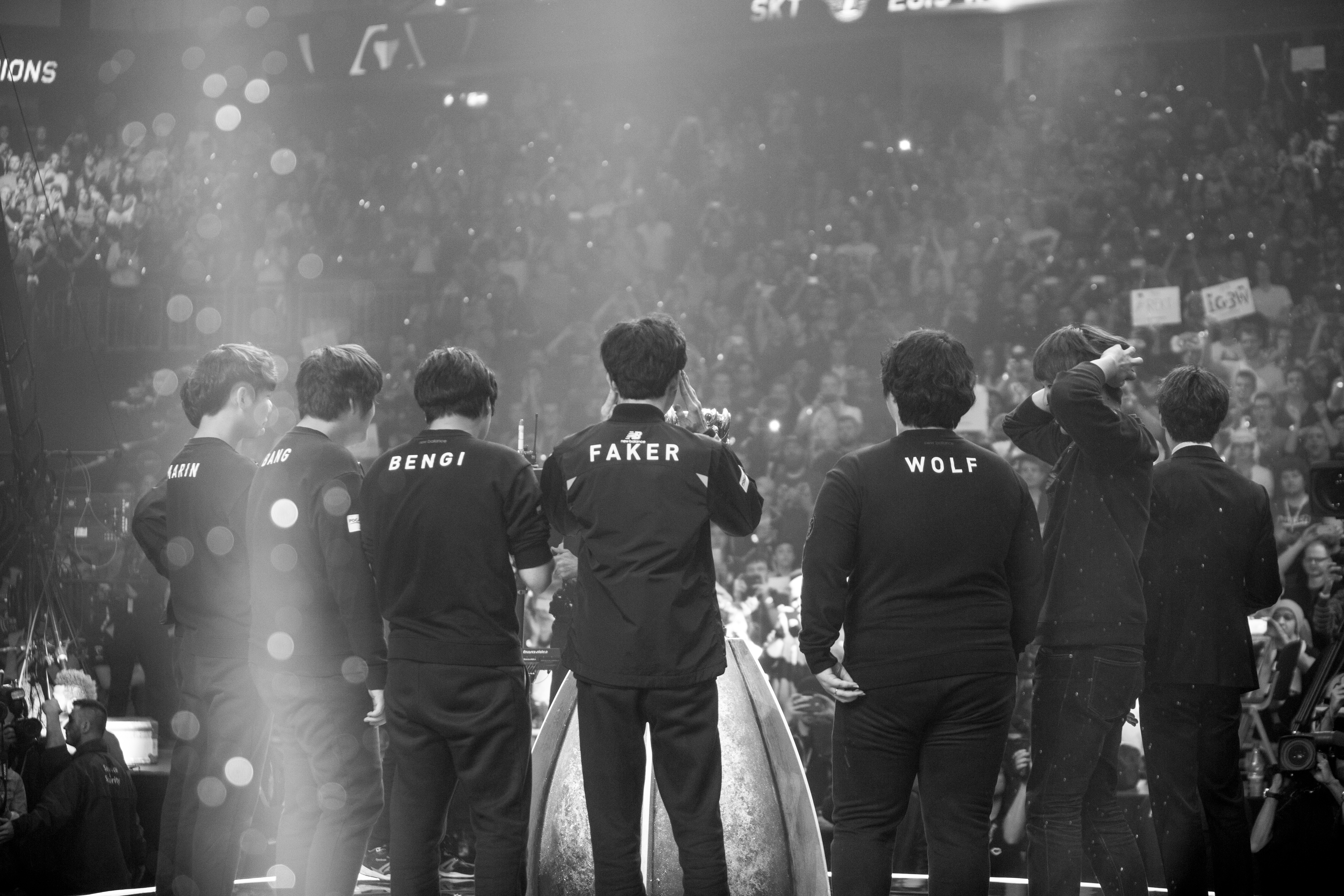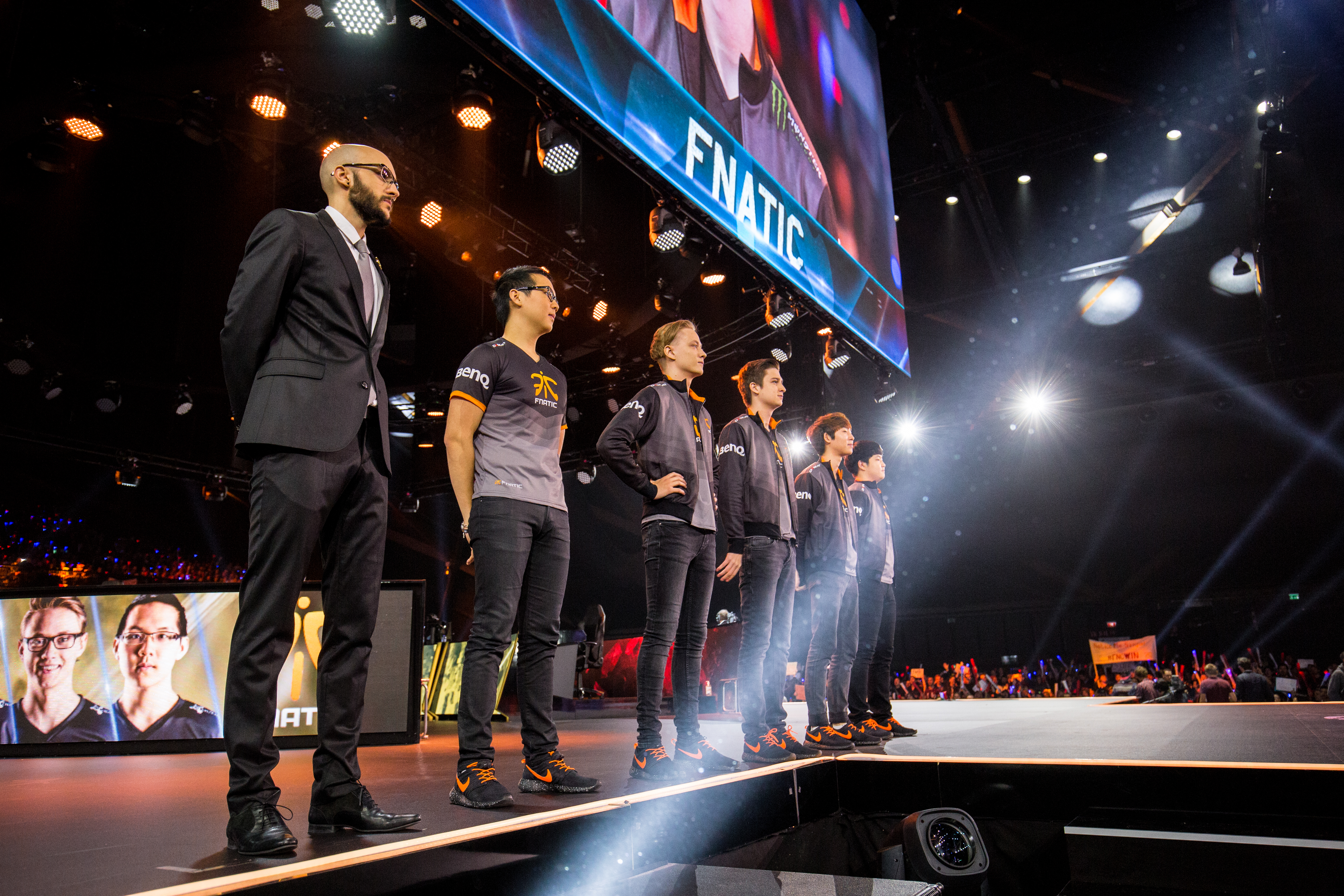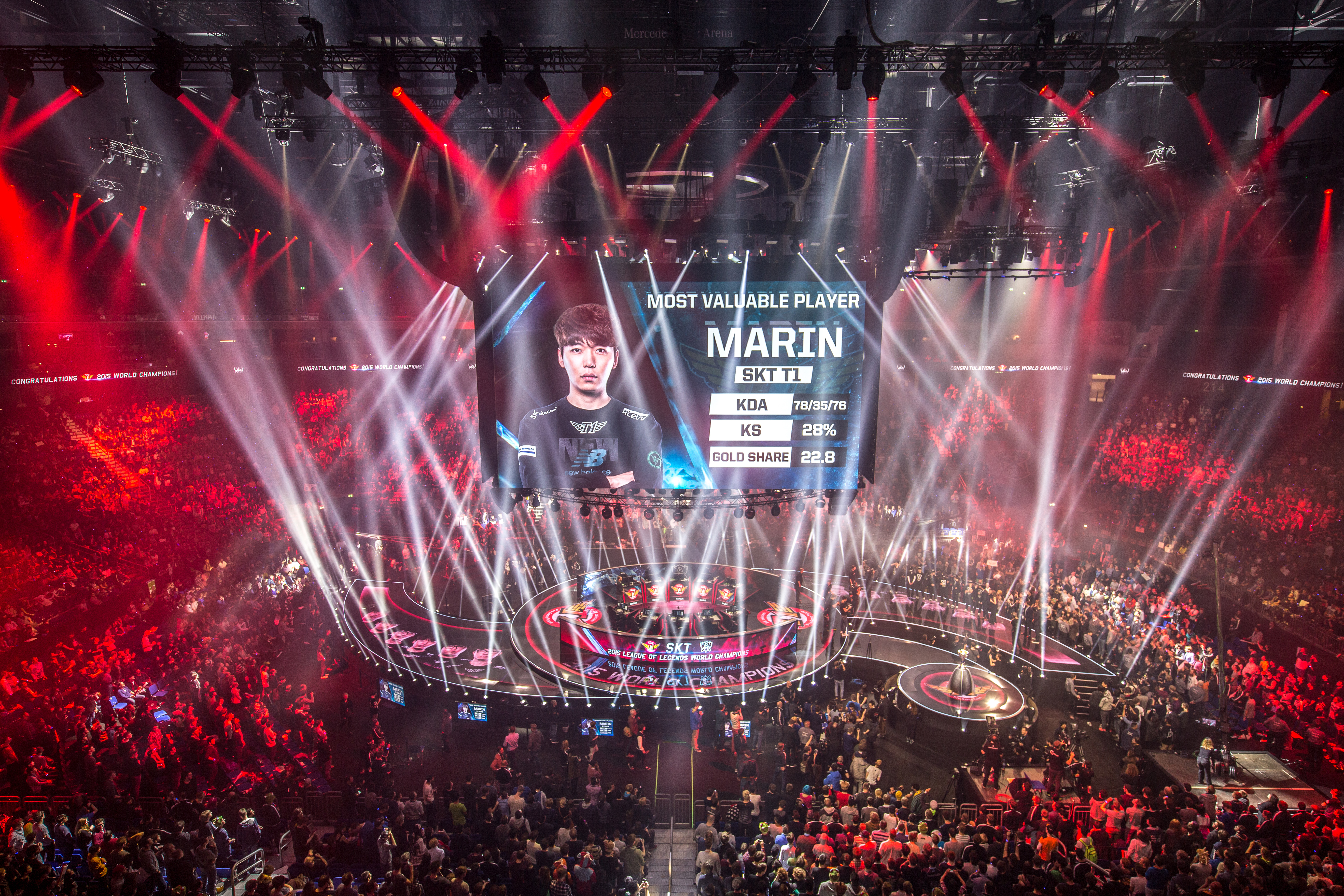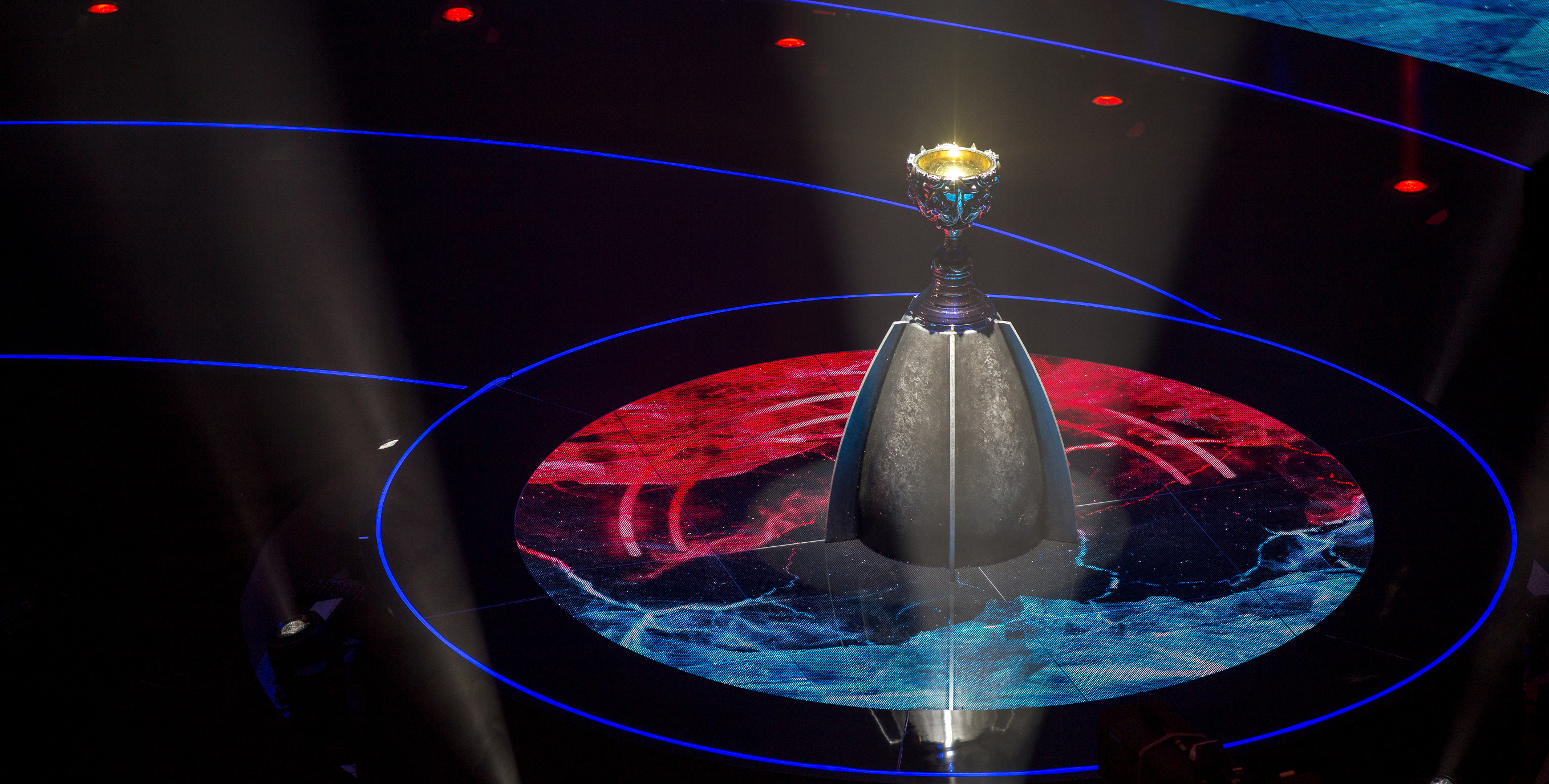The great big League of Legends wishlist for 2016

The confetti's been broomed off, the fancy as hell digital stage's dismantled, and the gargantuan silver-gold-and-glass Summoner's Cup has been stowed away for another year. No doubt, by now, the victory hangovers have finally passed for SKT T1's merry band, along with that of their and KOO Tigers' fans back home.
But they won't get any chance to rest. The preseason hijinks won't be having with any of it. Almost immediately after the world champions were crowned, the memory of it all was banished in favor of the excitement, drama and anguish of the post-Worlds roster swaps. North America, especially, is in an unending uproar as Peter "Doublelift" Peng found himself punted from the Counter Logic Gaming house... and onto the doorsteps of archrivals Team Solomid.
In fact, opportunities for AD carries have been extensive in just the last week. Controversial Grecian god of bot lane FORG1VEN's hinted at a return to the competitive limelights, Copenhagen Wolves' anticipated disassembly began with Freeze's declaration of free agent status, and CLG was spotted trying out former TSM player Wildturtle, just to rub more salt into their fans' emotional wounds. The seeming focus on bot lane talent isn't unexpected, given that the preseason Public Beta Environment tests are teasing a major change and general upgrade to the bot lane.
The next competitive season is going to be very interesting. But the real question is: will it be better than Season 5? There were a number of difficulties and disappointments in the last year (or years) that need to be addressed—and sooner rather than later. As Right and Proper as it is for South Korea's Faker to reclaim his throne, the overall dismal performance of China and North America (not to mention the scarily uncertain prospects of Taiwan's competitive future) has highlighted major weaknesses in the League of Legends competitive structure, and the responsibility for addressing them doesn't just lie with Riot. With rumors swirling of big names and even bigger wallets cashing in on the esports phenomena (are the Sacramento Kings REALLY bidding for an LCS spot?!), it's time to do a little growing up. Here's what I'd like to see in the next few months:

1. Better LCS/Challenger Integration
South Korea didn't just survive the Great Chinese Exodus of 2014—they came out of it somehow even more dominant than before. But it's important to note what their infrastructure implies. It isn't the ability to hire the very best talents in a region, jam their bank accounts full, and ensconce them in team mansions until it's time to play. When SKT T1 K won Worlds 2013, it was off the back of a roster of rookies and unpolished veterans. When they won this year, it was with a majority roster of sister team SKT T1 S players, who were something of a joke in seasons prior. The organization won't just go down as the single most successful in League history thus far—they'll also be known as the single best talent culivators the scene has ever seen.
The western scene does not, as yet, have a comparable program. If anything, they're cannibalistic—LCS teams have a bad habit of gutting Challenger teams of already-proven cream-of-the-crop players whenever they need to fill a role, and then discard them when it turns out that a lack of LCS experience means that the best Challenger players'll have a hard time keeping up. That not only disincentives Challenger play (creating solo queue conditions that are of questionable utility at best), but also means that teams outside of those already entrenched have a half-life measured in three-month splits. And even the entrenched should be wary—CLG's total implosion despite their most successful year to date is already threatening their bottom line as former Doublelift fans renounce their loyalty and cancel plans for purchasing branded gear.
It should be on the teams, not Riot, to develop an internal trainee program—if nothing else, then solely as an act of self-defense against entropy, time, and the constant background threat of carpal tunneling. Ensuring that the team will always have a wellspring of talent to draw from, even if you have to train them yourselves, isn't just good for the team. It's good for the entire region to encourage solo queue players to do their damnest to attract a scout. And if the KOO Tigers can do it without sponsors, if non-LMS, LPL or LCK players don't particularly expect to be paid well in the first place to be on a trainee team, that leaves even the poorest LCS team very little excuse.
Keep up to date with the most important stories and the best deals, as picked by the PC Gamer team.

2. Expanded International Program
Worlds needs more seeds. Brazil's been showing serious moves, getting more and more threatening to the premier regions with every year. Turkey's soccer teams are buying up slots for their circuits and paying esports analysts surprisingly great salaries to make them competitive. And Japan... if Riot were to sell Japanese voice packs internationally, the otaku culture in the west'll fund the entirety of the LJL for years to come, frankly, much less aiding Japan's voice actors and actresses with their famously dismal situation with compensation.
And it's just plain necessary, if they want these developing markets to stay developing. SEA and Taiwan is a brilliant case study for this. Within the span of a single season, the Taiwanese teams' separation from the Southeast Asian market led to their best-ever competitive performance... while SEA struggles to stay ahead of less-experienced teams in Oceania and Turkey, despite years of competitive experience to their advantage.
Of course, it would help a lot—a LOT—if Riot included preferential assistance there. Taiwan's going to struggle mightily in 2016 to hang onto their players, now that the LPL learned that there's serious heavyhitters just off their coast that doesn't have Korea's communicative issues on Mandarin soil. The limited endemic sponsorships in the LMS region helps nobody's cause, and the local economic and cultural support for esports in Brazil and Thailand is "limited" to put it politely. Now that esports in general has the attention and consideration of decidedly non-endemic, international-scale sponsors, some due consideration should be given to the bootstrapping and nurturing program of these younger circuits.

3. Improved Player Protection
Whoo boy. The last year's been interesting. Just recently, Hong Kong Esports owner Derek Cheung was found guilty by Riot's Taiwanese representatives of pressuring his team to deliberately lose games for preferential seeding—a situation that cost his team a seeming slap of the wrist in the form of $6,000 (200,000 Taiwanese dollars). To be fair, though, there's strong implications that his players rebelled—they won a game off the set anyhow, which either means they were truly uncomfortable with the idea or Midnight Sun Esports has some soul-searching to do. And, frankly, that's nothing compared to what Meet Your Makers threatened to do with a former player's mother! And then there's the delayed payments that cost Immunity Esports' future participation in all League of Legends events, the accusation of poaching between LCS and Challenger teams, players finding out that they got kicked by reading a Reddit post instead of being told about it face-to-face... the list goes on.
Esports drama is a given—it's part of what makes it so alluring—but there's a point where it's just downright unprofessional and harmful. The lack of transparency over contracts and compensation doesn't help either—team owners of even the best-funded organizations get defensively clammy when asked for details, and players hinder themselves by refusing to rock the boat and disclose, giving everybody (including themselves) only the muddiest idea of what's fair, proper, and market-average.
It's about time that esports agents stepped into the field. Shady and borderline business practices need to be stopped before they have a chance to start at all, and having professionals negotiate on behalf of the players' interests will at least mitigate the most harmful of these practices.
Of course, the players themselves need to recognize that they simply don't have the business acumen and expertise to do the negotiations alone, or to recognize when they're getting contractually screwed. Whether enough of them realize this to make a dent in the status quo is almost another problem unto itself.

4. A Fancier Worlds
Honestly, I was a little disappointed with the pomp and ceremony this year. Sure, following up on 2014's act was going to be hard: a full traditional Korean orchestra with Imagine Dragons as headliners at the gargantuan Sangam Stadium was pretty much pulling out all the stops at once. This year we got... a music video, a digital stage, and a closing ceremony that was mostly interviews.
Mind you, it was a really nice stage. But the circumspect nature of this year's ceremony did not go without notice. And it raises questions about the prestige of the event. While topping itself every year is hardly a sustainable endeavor, 2015 set a disappointing baseline—we're here to celebrate the accomplishments of teams that struggled through a month of top-of-the-line international play, so the least you could do is make them feel like heroes for doing so.
And the least you can do is increase the payouts for them too. The prize pool's remained unchanged for three years now, and at the very least it's time to adjust it for inflation. But coupled with the greater market investments in esports, the accelerated growth of competitor platforms, and the development of streaming culture, and the $1 million afforded to the world champion team feels kind of... piddly.
From a marketing standpoint, it casts the greatest League of Legends event of the year in a less serious light compared to DOTA 2 or CS:GO's majors, whose payouts are reaching proportions actively comparable to more conventional competitions. It also makes top-level talents and organizations wondering whether they might not gain more from hitching onto the prestige of such programs. And that is a dangerous train of thought to go unaddressed.
5. REPLAYS
For goodness sake. Amsterdam and Chicago servers are both activated. Turn on replays already! We've waited literal years for it! Five long years! League analysts are driven half-made by the ramshackle tools they're using in its stead—give them a break already! Replays in 2016 or bust!

PC Gamer Pro is dedicated to esports and competitive gaming. Check back every day for exciting, fun and informative articles about League of Legends, Dota 2, Hearthstone, CS:GO and more. GL HF!

